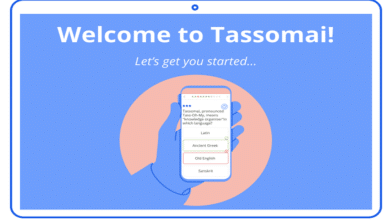The Versatility of En Effet: Mastering French Expressions

En effet is a versatile French expression that can be translated to “indeed,” “in fact,” or “actually.” It is commonly used in both spoken and written French to confirm or emphasize a point. Understanding how to use “en effet” properly can greatly enhance your French language skills, making your communication more precise and nuanced. In this blog post, we will explore the various contexts and nuances of “en effet,” providing you with a thorough understanding of its application.
The Basic Meaning of “En Effet”
“En effet” translates to “indeed,” “in fact,” or “actually.” It is used to confirm or provide additional information about a preceding statement. For instance, “Il est très intelligent. En effet, il a réussi tous ses examens avec mention.” Here, “en effet” is used to emphasize the previous statement about someone’s intelligence by providing supporting evidence. Understanding this basic meaning is crucial as it lays the foundation for its more nuanced uses.
Using “En Effet” to Confirm Information
One of the primary uses of “en effet” is to confirm information. When someone states a fact or provides information, you can use “en effet” to agree and confirm their statement. For example, if someone says, “Les chiens sont des animaux loyaux,” you can respond with, “En effet, ils sont connus pour leur fidélité.” This use of “en effet” shows that you agree with the statement and are adding more information to support it.
En Effet in Explanatory Contexts
“En effet” is often used to provide explanations or justifications for a statement. For example, “Il n’est pas venu aujourd’hui. En effet, il est malade.” In this context, “en effet” introduces the reason for the previous statement, providing clarity and additional detail. This explanatory use makes “en effet” a powerful tool in communication, allowing you to link statements logically and coherently.
Differentiating “En Effet” from Similar Expressions
While “en effet” is often translated as “indeed” or “in fact,” it is important to differentiate it from similar expressions such as “effectivement” and “en fait.” “Effectivement” is used to agree with a statement, similar to “en effet,” but it can also mean “actually” or “as a matter of fact.” On the other hand, “en fait” is used to correct or clarify a statement, often translating to “actually” or “in reality.” Understanding these differences will help you use “en effet” more accurately.
Formal vs. Informal Usage of “En Effet”
“En effet” is versatile and can be used in both formal and informal contexts. In formal writing, such as academic papers or professional correspondence, “en effet” adds a layer of sophistication and precision. For example, “Les résultats de l’étude sont significatifs. En effet, ils montrent une corrélation claire entre les variables.” In informal conversations, “en effet” can be used to emphasize a point or provide additional information, such as, “Je suis fatigué aujourd’hui. En effet, j’ai travaillé tard hier soir.”
Common Mistakes When Using “En Effet”
A common mistake when using “en effet” is confusing it with “en fait” or “effectivement.” Another mistake is overusing it, which can make your speech or writing sound repetitive. To avoid these pitfalls, practice using “en effet” in various sentences and pay attention to how native speakers use it. For instance, instead of saying “En effet” in every sentence, try to use synonyms or rephrase your sentences to maintain variety and interest.
Enhancing Your Writing with “En Effet”
In writing, “en effet” can be used to introduce additional information or to emphasize a point, making your text more persuasive and coherent. For example, in an essay, you might write, “La pollution de l’air est un problème grave. En effet, elle cause des maladies respiratoires et réduit l’espérance de vie.” Here, “en effet” introduces further evidence to support your argument, enhancing the overall impact of your writing.
The Role of “En Effet” in Conversations
In conversations, “en effet” can be used to show agreement or to provide additional information. It helps to create a logical flow and makes your points more compelling. For instance, if someone says, “Le concert était incroyable,” you could respond, “En effet, la performance était exceptionnelle.” This not only shows that you agree but also adds emphasis to the statement, making the conversation more engaging.
Cultural Nuances of “En Effet”
Understanding the cultural nuances of “en effet” can enhance your communication skills. In French culture, precision and clarity are valued, and using “en effet” appropriately can demonstrate your proficiency and understanding of the language. For example, when discussing a topic with French speakers, using “en effet” to provide additional information or to confirm a point can make your arguments more persuasive and credible.
Practicing “En Effet” in Real-Life Scenarios
To master “en effet,” practice using it in real-life scenarios. Engage in conversations with native speakers, write essays, and read French texts to see how “en effet” is used in different contexts. For example, try writing a short story or an article and incorporate “en effet” to emphasize points or provide explanations. The more you practice, the more natural it will become.
Learning from Native Speakers
One of the best ways to learn how to use “en effet” is by listening to native speakers. Watch French movies, listen to French podcasts, and pay attention to how “en effet” is used in conversations. For instance, in a French movie, you might hear a character say, “Il a beaucoup de talent. En effet, il a gagné plusieurs prix.” This will help you understand the context and nuances of “en effet” better.
Exercises to Improve Your Use of “En Effet”
To improve your use of “en effet,” try the following exercises:
- Write sentences using “en effet” to confirm information.
- Create dialogues where characters use “en effet” to explain or emphasize points.
- Translate English sentences into French, incorporating “en effet” where appropriate.
For example, translate “He is very kind. In fact, he helps everyone he meets.” to “Il est très gentil. En effet, il aide tout le monde qu’il rencontre.” These exercises will help you practice and perfect your use of “en effet.”
Conclusion
“En effet” is a versatile and powerful expression in the French language. It can be used to confirm information, provide explanations, and emphasize points. By understanding its various nuances and practicing its use in different contexts, you can enhance your French language skills and communicate more effectively. Remember to pay attention to how native speakers use “en effet” and incorporate it into your conversations and writing for a more sophisticated and precise communication style.
FAQs
1. What does “en effet” mean in English? “En effet” translates to “indeed,” “in fact,” or “actually” in English.
2. How is “en effet” different from “en fait”? “En effet” confirms or provides additional information, while “en fait” is used to correct or clarify a statement.
3. Can “en effet” be used in formal writing? Yes, “en effet” is suitable for both formal and informal contexts, adding precision and clarity to your writing.
4. Is “en effet” commonly used in spoken French? Yes, “en effet” is frequently used in spoken French to confirm or emphasize points in a conversation.
5. How can I practice using “en effet”? Practice using “en effet” in sentences, dialogues, and by translating English sentences into French. Engage with native speakers and observe its usage in French media.




